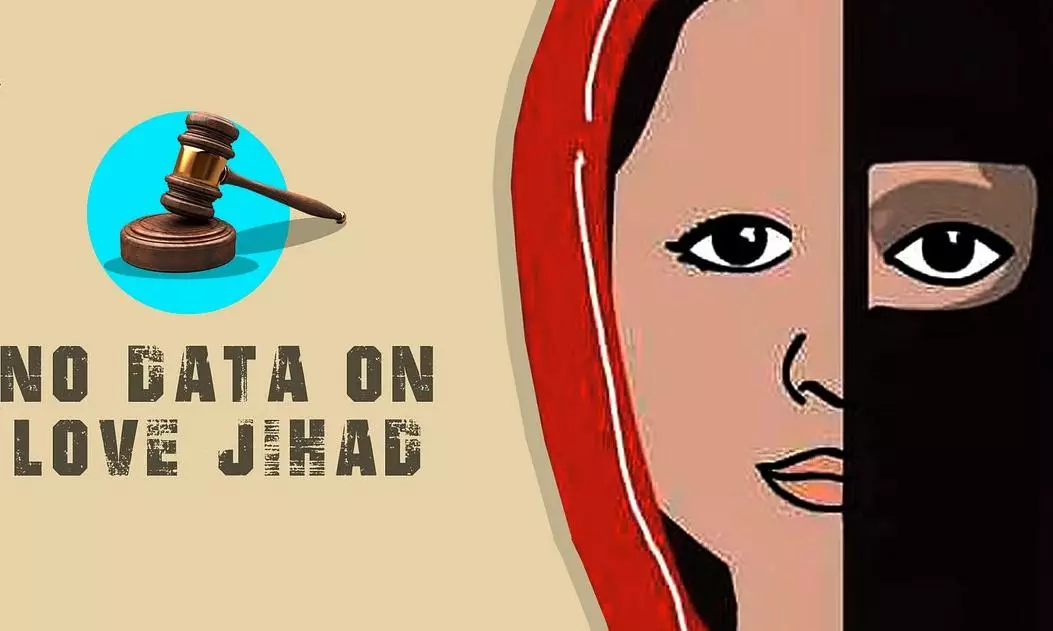
UP judge’s conviction invoking unrecognized ‘love jihad’ term sparks legal debate
text_fieldsIn a recent sentencing that has sparked considerable debate, a judge in Bareilly sentenced a Muslim youth to life imprisonment, making several controversial and unverified claims regarding the supposed targeting of Hindu women by Muslim men for conversion to Islam.
Judge Ravi Kumar Diwakar invoked the term “love jihad,” a concept often associated with extremist right-wing rhetoric aimed at deterring Hindu women from engaging in relationships with Muslim men. His remarks have raised questions about the intersection of law and politics, highlighting the contentious nature of the term within public discourse.
“Love jihad” has gained traction within the political narrative, especially among members of the Bharatiya Janata Party (BJP) and its affiliates in the Sangh Parivar ecosystem. This term has been frequently employed in political rallies and events, suggesting a coordinated effort by Muslim men to deceive Hindu women under the guise of love.
However, despite its popularity in political circles and mainstream media, “love jihad” lacks a legal basis or formal definition.
Diwakar's use of this phrase in the context of a criminal case is particularly noteworthy, as it contradicts the official legal stance of the Uttar Pradesh government. In 2020, when the state government introduced a law against unlawful conversions, it did so following promises to tackle “love jihad.” Yet, the resulting legislation did not mention the term, maintaining a neutral stance on the issue.
The Uttar Pradesh Prohibition of Unlawful Conversion of Religion Act, enacted in 2021 and amended in 2024, does not reference “love jihad,” which could imply legal discrimination against certain communities. The law was designed to address cases of coercive conversions and to uphold the constitutional guarantee of religious freedom, ensuring that no religion is given preference over another.
The government's stance has remained consistent; in responses to various public interest litigations challenging the law's constitutionality, officials stressed that the term “love jihad” is absent from the legal framework. They argued that the law is applicable to all forms of forceful conversion, not just interfaith marriages. Concerns have been raised that the law could enable police harassment of interfaith couples, with petitions citing the potential for abuse under the guise of enforcing the law.
Legal experts and advocates have criticized Diwakar’s remarks, labelling them as politically charged and indicative of religious bias. Critics argue that the judge's reference to “love jihad” reflected an alignment with right-wing ideologies rather than an impartial legal analysis. Observers have pointed out that the case at hand involved allegations of rape, rather than unlawful conversion, rendering the use of such terminology inappropriate and extraneous.
The All India Lawyers’ Association for Justice (AILAJ), a pan-India organisation of lawyers, has condemned Judge Diwakar's ruling, labelling it as communal, misogynistic, and paternalistic while calling for action against him. AILAJ accused the judge of harbouring prejudices against the Muslim community and manipulating evidence to align with his preconceived conspiracy theory of "love jihad."
They emphasised that the case in question was about rape, not unlawful conversion, yet Diwakar nonetheless ruled it as a case of unlawful conversion through love jihad. This conviction is problematic not only for its right-wing views and promotion of anti-Muslim sentiments but also for its flawed understanding of women's consent. Additionally, legal experts pointed out that the term "love jihad" lacks legal standing, reflecting a religious bias in the judgment. Zia Jilani, a lawyer involved in related cases, noted that "love jihad" is not recognised in legal terminology.
Additionally, prominent legal organisations have condemned Diwakar’s comments as communal and paternalistic, asserting that the ruling judge appeared motivated by prejudice against the Muslim community.
The Uttar Pradesh government has been diligent in tracking cases related to the unlawful conversion law since its introduction, but there is no separate data or recognition of crimes specifically classified under the term “love jihad.”






















